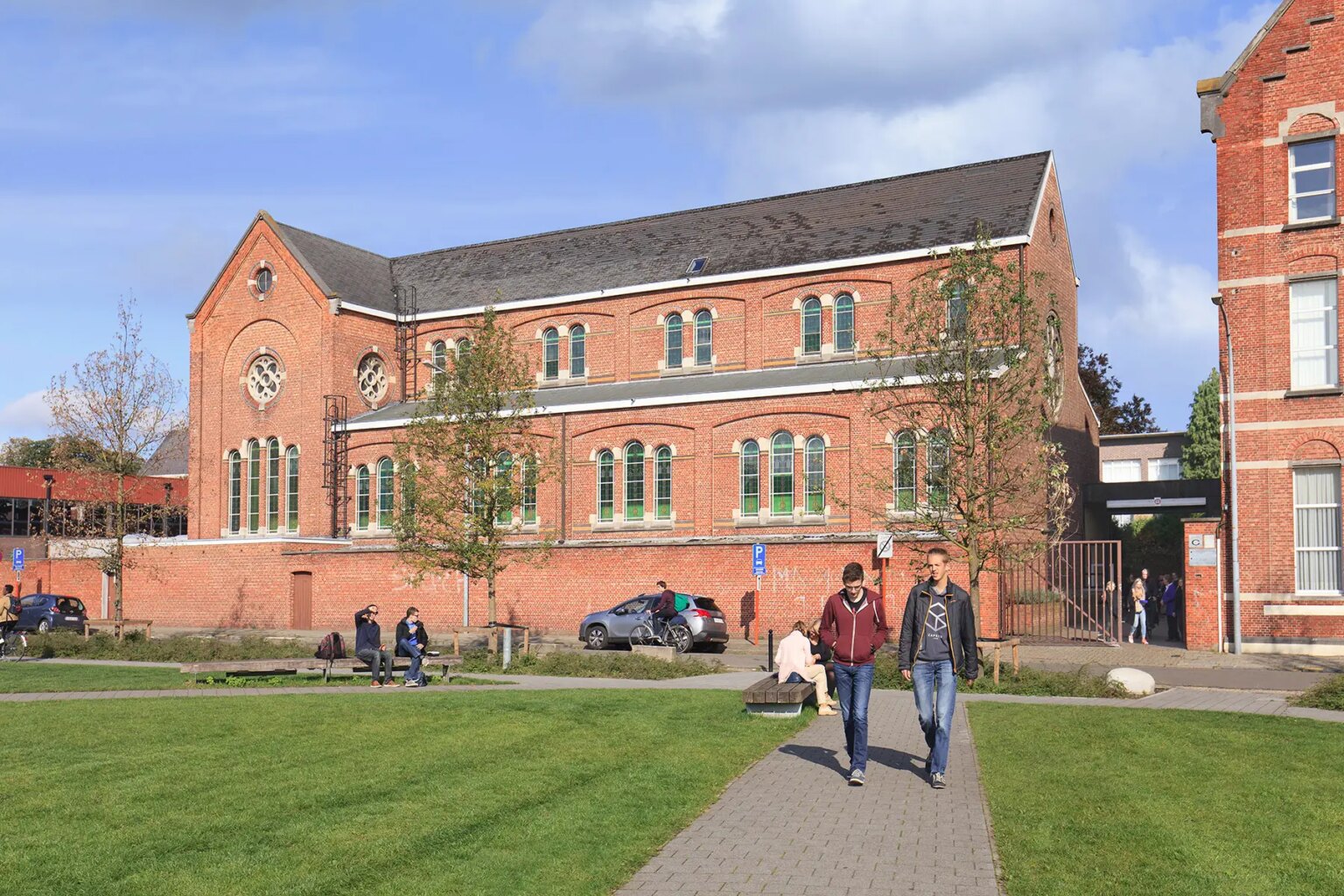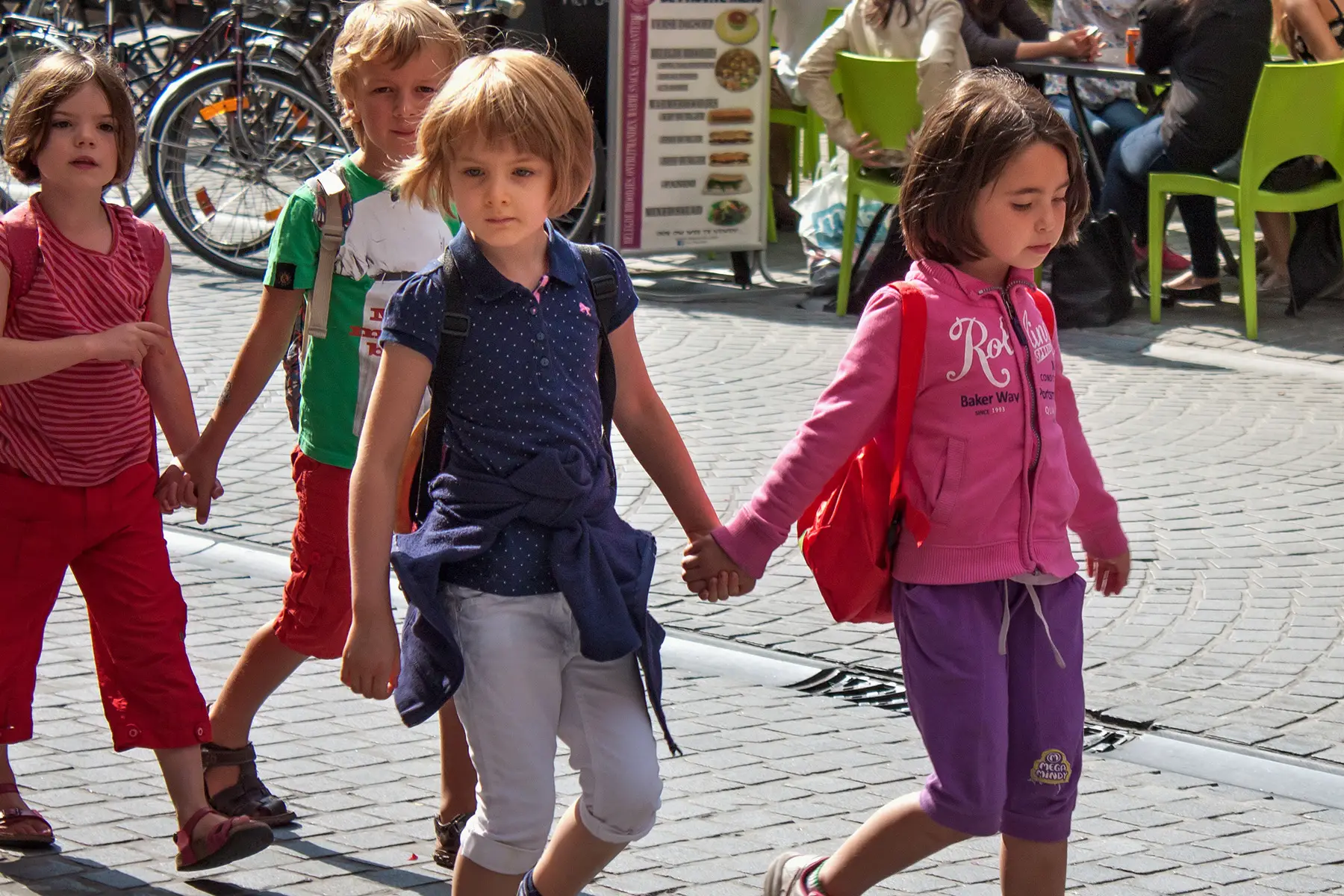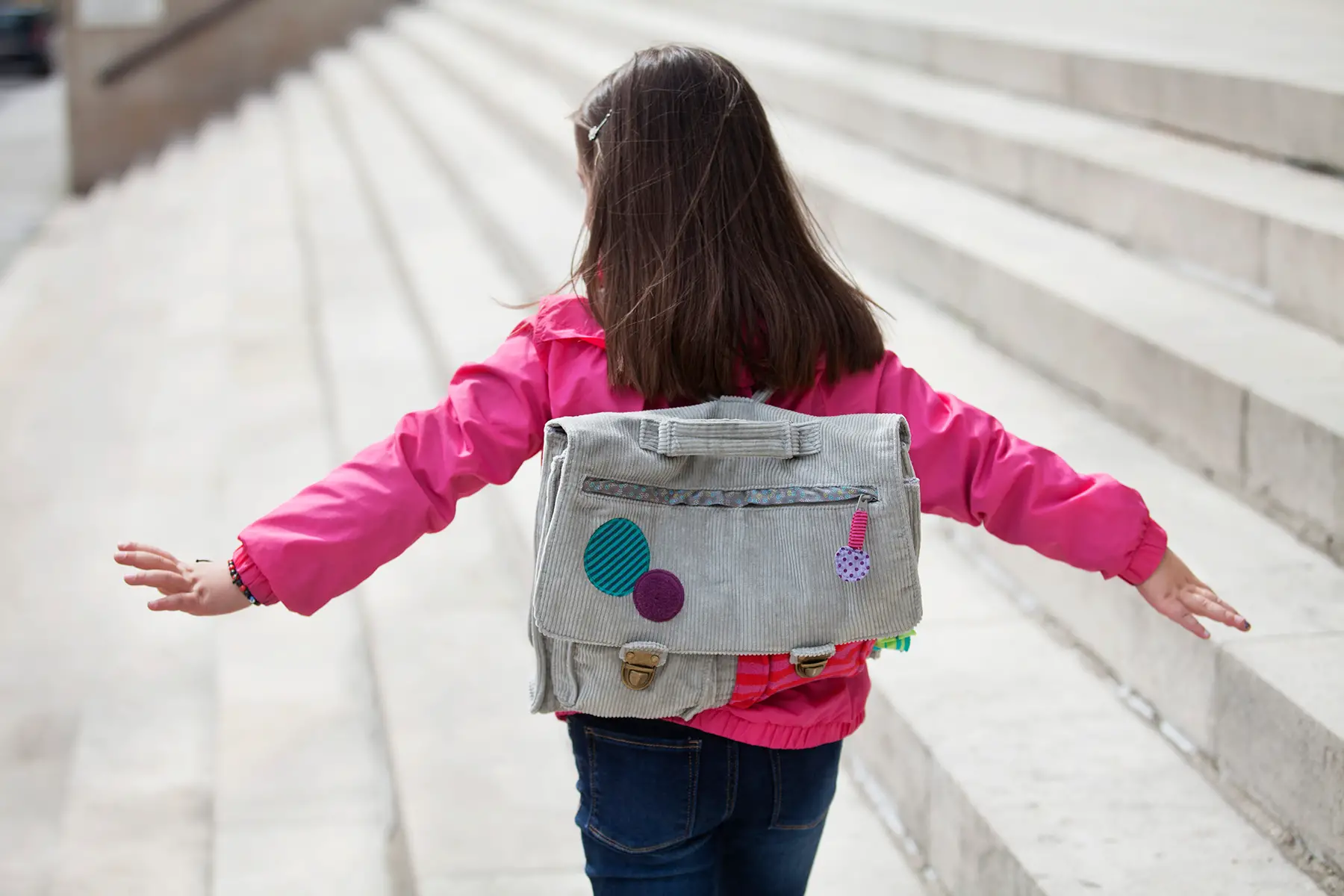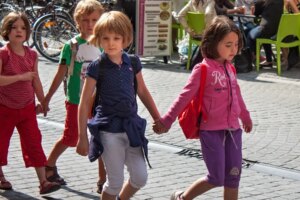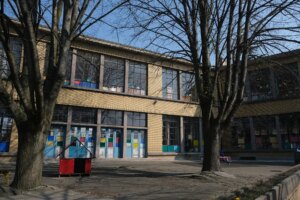Belgium has a large international population. Consequently, if you are moving here with children you will find a wide choice for childcare in Belgium. Some schools offer a British, American, European, or bilingual curriculum, while others follow a specific style of education, including Montessori.
While popular with expats, international school fees in Belgium can be steep. The curricula and facilities on offer also vary greatly from school to school; it’s worth having all the facts before you decide. This guide will help you navigate the options, to ensure that you find the best fit for your child.
BEPS International School
BEPS International School is a leading independent school in Brussels. It provides an internationally-focused education for children aged 2½ to 18 via a challenging, inquiry-based learning experience. BEPS International School offers the International Baccalaureate programs for all ages.
The Belgian education system
There are three distinct language communities in Belgium:
- Dutch
- French
- German
As a result, each community manages its own public education system. Nonetheless, there are some consistencies throughout. The compulsory school age throughout Belgium, for example, is between 6 and 18, divided into primary (6–12 years) and secondary (12–18 years). Before the compulsory school age, there are also pre-primary school facilities for children aged 2.5 years and over.
Due to the decentralized organization of education and registration that is not restricted by a catchment area, enrolling in a school can be competitive and requires forward planning.
International schools in Belgium
Belgium has a culturally diverse population and is home to many international governmental organizations. This is particularly the case in Brussels, which is the seat of many European and global institutions.
About 12.5% of the current population is non-Belgian. This means there is a high number of international schools that promote culturally diverse education and cater specifically to expats. The majority of these schools are located in Brussels, but there are also options in Antwerp, Mons, and others.
Often expat parents opt to send their children to an international school rather than a local school. This can reduce the disturbance in a child’s education, particularly if you have plans to relocate to another country.

Many schools offer English-language education but teach other languages from a young age. Other schools offer bilingual education, teaching different topics in different languages, including French, German, and Japanese. Some international schools require prospective pupils to undergo an entrance test, particularly if they’ll learn a new language.
Why opt for an international school
International schools here also often have better facilities and offer more extracurricular activity options than public schools. They also adhere to high academic standards and offer internationally recognized qualifications, including the International Baccalaureate, GCSEs and American high school diplomas, which can be beneficial when it comes to applying to higher education outside of Belgium, or finding employment. A few also offer boarding facilities and tailored programs and facilities for children with special educational needs (SEN).
Schools receive accreditation by international institutions such as:
- Council of International Schools (CoIS)
- European Council of International Schools (ECIS)
- Middle States Association (MSA)
Ask about a school’s system of accreditation before enrolling your child.
International schools in Belgium cater to a range of ages, with some offering education from preschool all the way to age 18, and others focusing on only pre and primary (up to age 12), sometimes with additional middle school teaching (up to age 15).
Types of international schools and certificates in Belgium
International schools in Belgium offer a number of different curriculums and certificates of education. It’s worth noting that in preparing for higher education (ages 16–18), some schools offer more than one stream for students to choose from. Below you will find information regarding the most main curricula available.
International Primary Curriculum (IPC)
The International Primary Curriculum (IPC) is taught to children aged between 3–12 years in 65 countries worldwide. The curriculum involves learning themes that involve core skills, rather than subjects. These themes – for example Rainforest – cover a broad range of topics and aim to promote cultural awareness. The teaching is focused on the emotional, spiritual and intellectual development of a child and encourages investigation, creativity and active learning.
Students have subject goals for learning knowledge and skills. Personal goals help develop their individual qualities. Assessment is non-traditional and ongoing, rather than based around tests. The main assessments take place at each milepost: 5–7 years, 7–9 years, and 9–11 years to determine the child’s developmental stage.
The International Baccalaureate (IB)
The International Baccalaureate (IB) follows similar educational guidelines as the IPC, with a strong focus on personal development and critical thinking. The IB offers a Primary Years Program (3–12), a Middle Years Program (11–16) and a Diploma or Careers Related Program (16–19). While the IB is usually in English, the focus on language-learning means all students study an additional language from at least age 7.
As the IB curriculum is in schools around the world, Belgian schools following this curriculum are a popular choice for families who relocate.
Schools offering IB curriculum programs include:
- BEPS International School
- The International School of Brussels
- Montgomery International School Brussels
- St. John’s International School
Assessments take a holistic approach, determining personal progress as well as academic. In secondary education, it becomes more rigorous, with two examination sessions that combine examinations with classroom assessments each year between ages 11 and 18.
The IB Diploma Program offers a challenging academic curriculum that prepares students for higher education. IB Diploma qualifications are recognized globally by universities. The Careers Related Program focuses on training geared towards a specific vocation, such as Business.
American international schools
American international schools offer education which follows a typical American curricular and extracurricular program, including Advanced Placement courses and Honors classes. Studying for alternative certificates from age 16–18 years may also be possible in some cases. Usually, education is divided into primary school, middle school, and high school. American English is the primary language of instruction.
As in schools in the U.S, the American High School Diploma works on a credit-based system, and is based on the entry requirements of American colleges and universities. The course is studied over three or four years, until high school leaving age (18 years). Subjects on offer are broad, but might include business and economics; science and technology; or social sciences in addition to core subjects.
In some cases it is possible to complement the syllabus with IB courses, to ensure that the diploma also meets the entry requirements for universities outside of the U.S.
Advanced Placement, created by the College Board in the US and Canada, offers college-level curricula to high-achieving students of secondary school age. The AP international is an internationally recognized qualification awarded to students studying for a high school diploma outside of the U.S or Canada, who show exceptional performance in specific subjects. Students do not need to apply, but do have to meet certain academic standards and eligibility requirements.
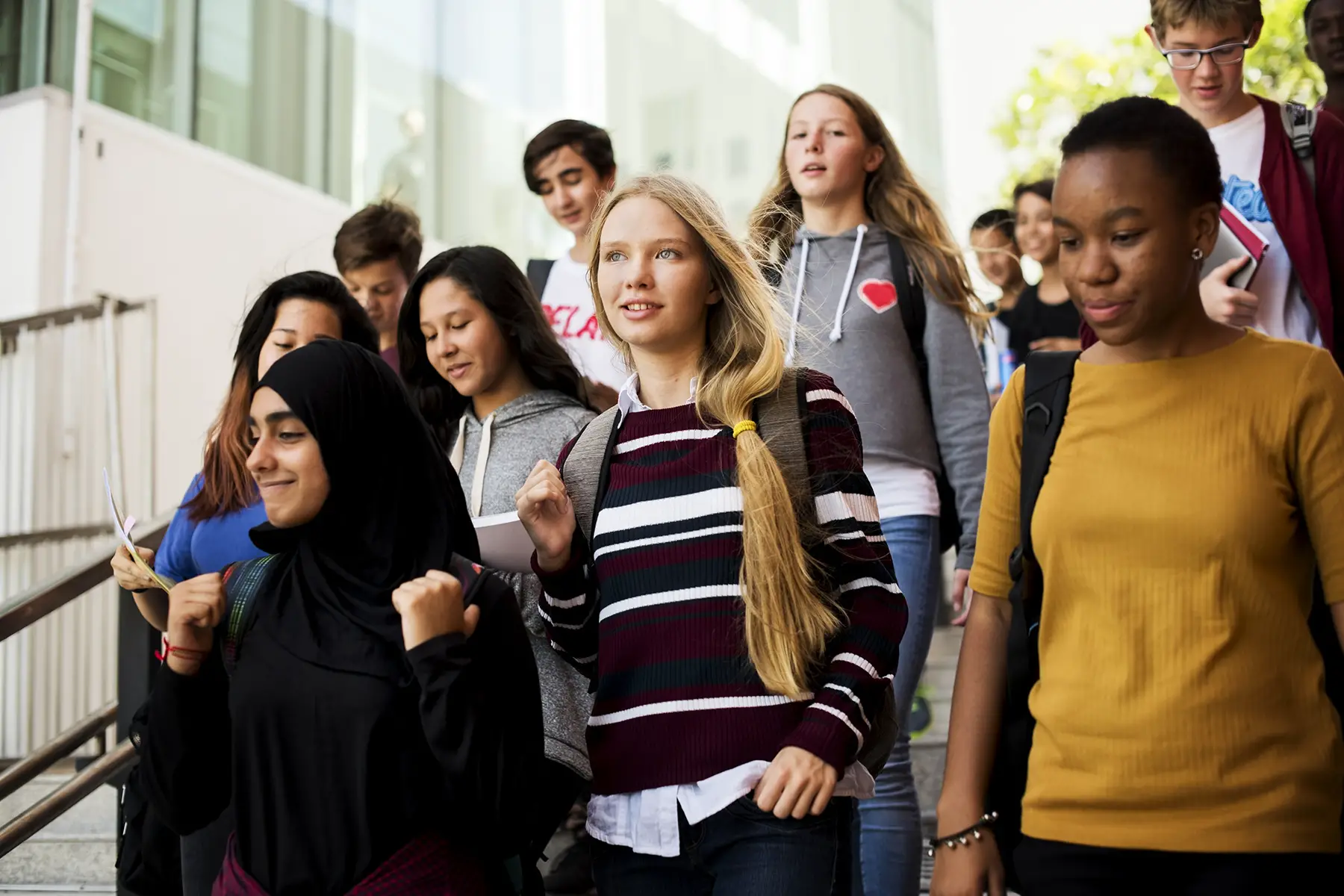
Some of the most popular options are:
- SHAPE International School, which provides education for the dependants of military personnel and civilian employees at the Supreme Headquarters Allied Powers Europe (SHAPE), a NATO military institution;
- the Brussels American School, which spans the whole age range, from kindergarten to grade 12 (age 18).
British international schools
There are several British schools in Belgium to choose from, located in the main Belgian cities. They offer the full range of UK education from nursery to secondary school, usually accredited by the Council of British International Schools. Teaching is in English and is based on the UK curriculum, but additional languages are a core focus, adapting to the needs of a diverse student body.
For secondary ages, the curriculum follows the GCSE course (14–16 years) and AS and A-Levels (16–18 years). However, some British schools, like BEPS, also offer IB courses, and in others, like St John’s international, the American High School Diploma is also available from age 16 onwards. The British School of Brussels even offers three pre-university routes: A Levels, the International Baccalaureate (IB) Diploma and BTEC vocational courses in Business, Hospitality and Sport – the only international school in Belgium to do so. Some, like the British School of Brussels offer non-selective entry, and others, such as the British Junior Academy of Brussels have an interview procedure.
International GCSE
The International GCSE (IGCSE) is an English-language based examination similar to the GCSE (General Certificate of Secondary Education) and aligns with the same educational standards. The IGCSE is two-year syllabus that begins in year 10 (age 14) and is tested in year 11 (age 15–16) by exam-based assessment, without any coursework. Students can choose from over 70 subjects, from art to economics, but some core subjects – usually including a native and non-native language, maths and science – are compulsory.
Depending on which examination board a school follows, Cambridge, Edexcel or Oxford AQA, exams can be at different times of the year.
IGCSE are accepted by many leading universities and employers worldwide as evidence of academic achievement. They are also recognized as the qualification prior to AS and A-levels or followed by the Cambridge International Examinations.
AS, A-level, and BTEC vocational courses
Usually overseen by the Cambridge International examination board, AS and A-Level syllabuses develop knowledge and skills taught at GCSE, focusing on more independent study. Unlike at GCSE, there are no core subjects required, and students are free to choose any combination of Subjects, usually four at AS and three at A-level. A-levels are recognized by many universities worldwide.
For students wanting to follow a more vocational course, some British schools offer BTEC for subjects like hospitality and business.
European Schools and European Baccalaureate (EB)
There are a few schools in Belgium that follow a European curriculum, overseen by the EU. Education is centered around multilingualism and teaching reflects a global community of staff and students.
European Schools include:
- The European School of Brussels I, II, III and IV all offer education from preschool to age 18 and have a combined study body of over 7,000 students. These schools are controlled jointly by European Union (EU) member countries and are public institutions.
- The European School of Mol, for ages 3–18 years is home to over 50 nationalities and teaches in Dutch, French, German, and English.
Available in the last two years of secondary education (16-18), the European Baccalaureate (EB) is taught in European schools overseen by the European Union. It consists of a multilingual curriculum, with students having to study subjects in at least two languages.
The EB is acknowledged by all EU member states, and recognized by European Universities, as well as others worldwide.
Other national international schools
- German: such as the Internationale Deutsche Schule Brüssel. Primary and secondary schools follow the German curricula and lead to recognized German school leaving certificates: Haupt-und Realschulabschluss (GCSES) and Abitur (university entrance).
- Japanese: The Japanese School of Brussels, with 300 students, offers a Japanese curriculum and is a hub of the Japanese community in Brussels.
Religious schools
Religious schools in Belgium are very popular. While private, subsidies for the fees for many local religious schools are available. These schools mainly follow a Catholic Framework, but there are also some Jewish and Islamic Schools.

International Catholic schools include Brussels International Catholic School, for ages 2-18, and Agnes School, for pre- and primary-school ages. Both teach a bilingual French-English curriculum.
Method schools
There are a variety of method schools in Belgium, offering alternate education streams where the focus is on holistic learning and child development.
- Montessori schools focus on creative thinking and holistic child development. Most schools offer only pre and primary education programs, with some, like the International Montessori Savoorke taking children from as young as six weeks. A few schools, such as the International Montessori School in Tervuren, offer secondary education, although students switch to the IB from age 11.
- Steiner Waldorf Schools take a humanistic approach to education, blending intellectual, practical, and artistic development. Secondary education focuses on critical reasoning. A popular choice for Belgian children as well as expats, curricula are in the local language (Dutch or French). Many of these schools also receive subsidies from the state.
Other certificates
Other models of education include:
- French-speaking Le Labo, which specializes in sport education;
- German school leaving certificates (16-18 years): Haupt-und Realschulabschluss (GCSES) and Abitur (university entrance) for example at Internationale Deutsche Schule Brüssel;
- French-Belgian Diploma: Certificat d’Enseignement secondaire supérieur général (CESS) at French-speaking schools, or through central examinations by the Communaute Francaise.
Should you send your child to an international school in Belgium?
There may be plenty of options when it comes to international schools in Belgium, but how do you decide if you should send your child to one of these schools, rather than a local school? Below you will find a list of the main advantages and disadvantages of international education in Belgium.
Advantages
- More extracurricular activities and better facilities, often including large green areas and sports facilities
- The chance to receive internationally recognized qualifications
- International schools are home to a global community of teachers and students, and provide culturally diverse learning opportunities
- There is usually a strong emphasis on languages and bilingualism
- Classes sizes are often small and there is a high teacher to student ratio
- If choosing a country-specific school or an IB school, the education system will be more familiar, and offers some consistency for future moves
- Parents can communicate with the school in their own language
Disadvantages
- International school fees in Belgium can be costly. However, your employer may be able to subsidize the fees if you are relocating for work.
- Children get less of an opportunity to integrate in Belgium culture and languages long term, which might create difficulties if you are moving permanently.
- Entry to international schools can depend on child’s academic abilities, assessed through an entrance test.
- Not every city has international schools, the majority of schools are located in Brussels.
- With high academic standards, some students may feel increased pressure.
Education standards in Belgium are generally high, so whatever you choose, you can be assured of a good education for your child.
How to choose an international school in Belgium
If you do decide that an international education is a good fit for your child, the next challenge is picking a school. There is a lot of variety: each school has different specialities and a distinct style. Below is a list of factors to consider in your search for the best international schools in Belgium.
- Location: in and around Brussels, there is plenty of choice, but elsewhere your options may be more restricted. A few schools, however, do offer small boarding facilities.
- Education system: does the curriculum follow a particular style or country system?
- Main languages spoken: some schools offer bilingual education, in others additional languages are distinct subjects.
- Qualifications available: sometimes students can study for different certificates in the same school, particularly in preparation for higher education in a specific country.
- Reputation: this can be tricky if you don’t yet have a network, but the good schools guide is a good place to start.
- Academic results: for secondary education it’s also worth checking the percentage of students who continue to higher education.
- Fees: these can range from around €6,000 to over €35,000 a year.
- Admission and enrolment procedures: some schools require academic testing, language testing, or more personality-focused assessment before registration.
- Extracurricular activities and facilities: the clubs activities and trips are on offer can vary greatly. Some schools also offer summer camps or language courses.
Although international schools in Belgium are not subsidized or funded by the Belgian government, funding for students may be available through scholarships and financial assistance programs available within individual schools.
Useful resources
- Council of International Schools (CoIS)
- Middle States Association (MSA)
- European Council of International Schools (ECIS)
- British Council – Opportunities and insight
- Belgian Ministry of Education
- International Schools Database – database for Belgium’s international schools
